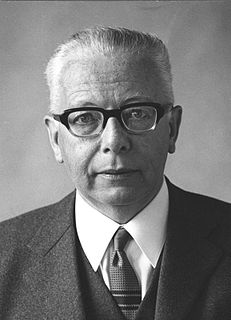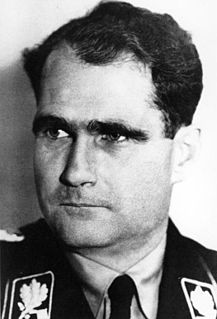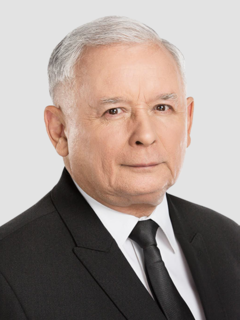A Quote by Tariq Ali
The real problem is the total capitulation of German social democracy to capitalism, reflected and symbolized by actual extreme center coalition governments in Germany, which have been in power for a long time and still are even as we speak. That is the real problem: that there is no serious opposition in Germany at all. And the Left party is divided.
Related Quotes
You're thinking of Europe as Germany and France. I don't. I think that's old Europe. If you look at the entire NATO Europe today, the center of gravity is shifting to the east. And there are a lot of new members. And if you just take the list of all the members of NATO and all of those who have been invited in recently -- what is it? Twenty-six, something like that? -- you're right. Germany has been a problem, and France has been a problem.
If I were a German today, I would be proud, proud but also worried. I would be proud of the magnificent achievement of rebuilding my country, entrenching democracy and assuming the undoubtedly preponderant position in Europe. But a united Germany can't and won't subordinate its national interests in economic or in foreign policy to those of the Community indefinitely. Germany's new pre-eminence is a fact - and its power is a problem - as much for Germans as for the rest of Europe.
You know how it always is, every new idea, it takes a generation or two until it becomes obvious that there's no real problem. It has not yet become obvious to me that there's no real problem. I cannot define the real problem, therefore I suspect there's no real problem, but I'm not sure there's no real problem.
In other words, the real problem is not exterior. The real problem is interior. The real problem is how to get people to internally transform, from egocentric to sociocentric to worldcentric consciousness, which is the only stance that can grasp the global dimensions of the problem in the first place, and thus the only stance that can freely, even eagerly, embrace global solutions.
What is true, and I think that we can't deny it, is that some of the same concerns about globalization, about technology, rapid social change that were reflected in Brexit, that's been reflected in some of the debates in Germany and France and other places, that those exist in the United States as well. My view is that over the long term, over the next 10, 15, 20 years, if we are able to address the legitimate economic concerns of those who feel left behind by globalization, then many of these tensions will be reduced. And we will see a world that is less divided.
I hope that the outside world will realise that Hitler's government has no idea of steering towards war, even though this has often been asserted abroad. As Adolf Hitler himself has said, Germany has no need of another war to avenge the loss of her military honour, because she never lost that honour. Germany does not want war of any kind. Germany wants real and abiding peace.
Germany's potential makes up about 20% of the EU's overall economic power, including Great Britain. The German army is by no means strong enough to guarantee the security of the EU's two endangered flanks - in the east and in the south. So all that remains for Germany is partnerships with its neighbours and other EU member states. Germany should stick to that role.
[Mikhail] Gorbachev said that he would agree to the unification of Germany, and even adherence of Germany to NATO, which was quite a concession, if NATO didn't move to East Germany. And [George] Bush and [James] Baker promised verbally, that's critical, verbally that NATO would not expand "one inch to the east," which meant East Germany. Nobody was talking about anything farther at the time. They would not expand one inch to the east. Now that was a verbal promise. It was never written. NATO immediately expanded to East Germany.





































